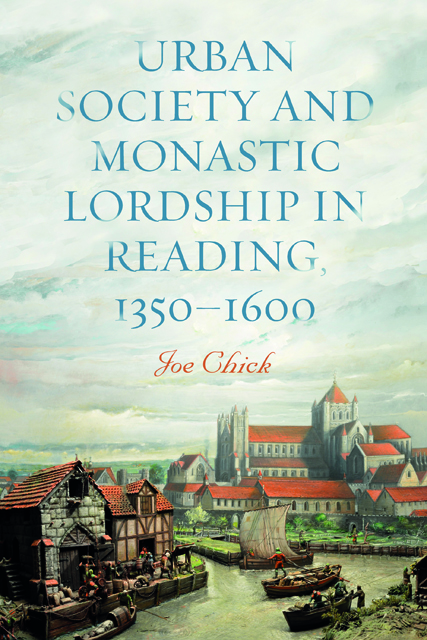Book contents
- Frontmatter
- Dedication
- Contents
- List of Illustrations
- Acknowledgements
- Abbreviations
- Notes on the Text
- Introduction
- 1 Setting and Society
- 2 Political Life
- 3 Economic Life
- 4 Religious Life
- Conclusions and Outlook
- A Social Network Analysis Datasets and Forms of Analysis
- B Trades Categorised by Status
- C Trades Categorised by Sector
- Timeline
- Bibliography
- Index
4 - Religious Life
Published online by Cambridge University Press: 17 December 2022
- Frontmatter
- Dedication
- Contents
- List of Illustrations
- Acknowledgements
- Abbreviations
- Notes on the Text
- Introduction
- 1 Setting and Society
- 2 Political Life
- 3 Economic Life
- 4 Religious Life
- Conclusions and Outlook
- A Social Network Analysis Datasets and Forms of Analysis
- B Trades Categorised by Status
- C Trades Categorised by Sector
- Timeline
- Bibliography
- Index
Summary
The traditional characterisation of monastic towns is preoccupied with the temporal role of monastic lords in the lives of the inhabitants. Yet they also had an important spiritual relationship with their tenants, many having the right to appoint vicars to the local parish and receiving the appropriated income of the benefice. With a particular focus on wills and churchwardens’ accounts, this chapter explores the key aspects of the urban community’s religious life: parishes; fraternities, stocks, and masses; prayers for the dead; poor relief; and the abbey and friary.
In comparison to other monastic towns, the monks and inhabitants of Reading led relatively separate spiritual lives. This appears to have been part of a more general distance in social relations, with wills leaving few bequests to the abbey and rarely mentioning kinship links between monks and inhabitants. It might have been anticipated that the towns associated with violence would be the ones with distant relations, but comparable evidence from Bury St Edmunds indicates the opposite. It suggests that closer bonds may have encouraged relations to become more personal and heated rather than fostering cooperation between town and abbey.
With the Dissolution, the prevailing stance in Reading was one of cooperation with royal policy, be it reformist or traditionalist in nature. The hope of securing a charter of self-government was an important motive for the pragmatic compliance of the urban elite. Some features of religious life continued beyond the Reformation. Firstly, there was participation from a broad section of urban society in most forms of religious practice, with few signs of a distinct brand of elite piety. Secondly, charitable projects continued to be parishioner-led in their nature, with the involvement of parishes mostly limited to what was required by law. Thirdly, mercantile prosperity remained important in supporting the development of new forms of pious activity. To draw attention to these continuities, the chapter explores each form of piety across the whole period rather than having separate discussions of pre- and post- Reformation piety.
Pious Bequests
Wills offer valuable insights into the spiritual life of parishioners, but what we get is far from a complete picture. The majority of a person’s pious giving often occurred during his or her life rather than upon death. Lifetime piety could take a different form from bequests and, even in making wills, testators might expect certain services that were not written down.
- Type
- Chapter
- Information
- Urban Society and Monastic Lordship in Reading, 1350-1600 , pp. 137 - 179Publisher: Boydell & BrewerPrint publication year: 2022



